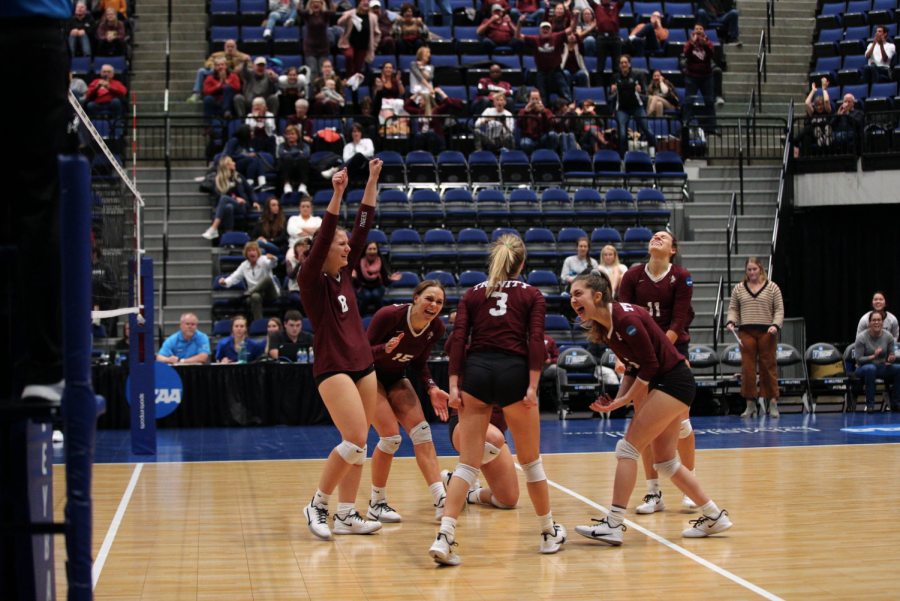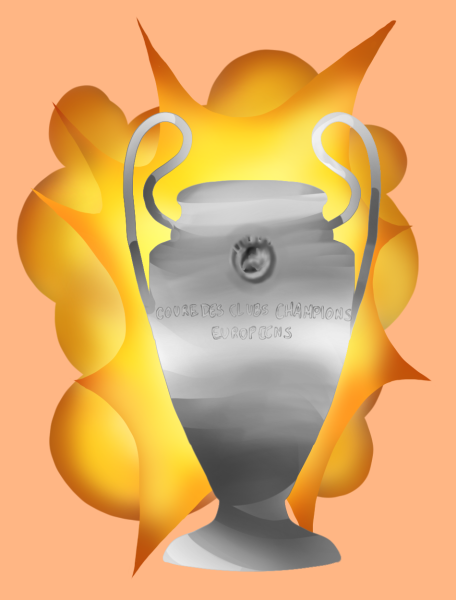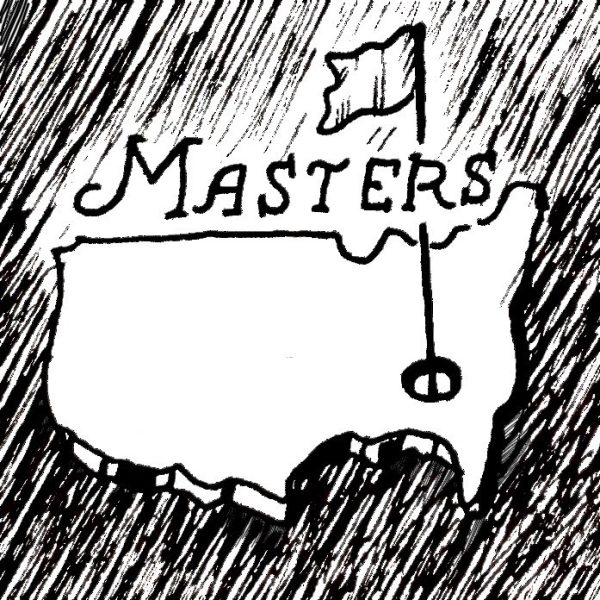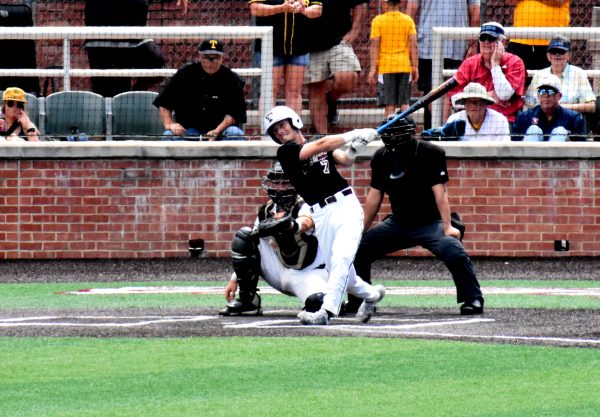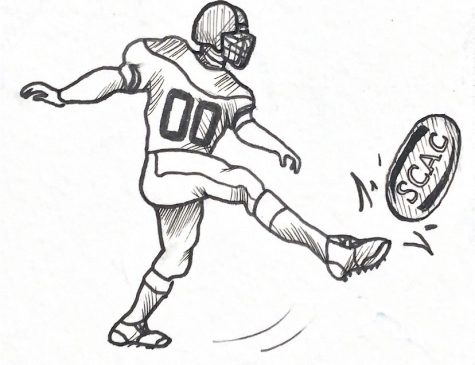Volleyball team set to ace nationals
Opinion: Preseason polls suggest a chance at a first-ever national championships win
he Tigers celebrate after a rally at the Final Four Tournament in Cedar Rapids, Iowa, which they ultimately lost to the Johns-Hopkins University Blue Jays who secured the title.
A little under two years ago, Trinity University’s volleyball team made the trip to Cedar Rapids, Iowa to compete in the National Collegiate Athletic Association (NCAA) championships. This past spring, in an unorthodox campaign abbreviated by the pandemic, they capped their season by taking on Colorado College in a pseudo-national championship.
Both times, the Tigers fell short.
In 2019, they would lose in the Final Four to the eventual National Champions from Johns Hopkins University. Last year, their Tiger counterparts in Colorado Springs would finish the season with a victory and in possession of the number one ranking in the nation.
But today, that is not the case. For the first time in school history, our Tigers opened a campaign at the top of the polls. Though it certainly is an honor to be announced as the preseason “number one” by the American Volleyball Coaches Association (AVCA), the Tigers surely have greater aspirations for this season. And while there is a long road between them and another appearance in the NCAA championships, I am confident that they will not only return, but also produce another first: a national championship.
As previously mentioned, Trinity was close to the feat in the 2019 season. They posted an incredible 37-5 record, which included a 17-1 mark in Southern Collegiate Athletic Conference (SCAC) play. They defeated five opponents ranked in the top 25 of the AVCA poll during the regular season, and the 19th and third ranked teams in the poll during the NCAA tournament. Unfortunately, they ran into something of a brick wall against Johns Hopkins, an experienced team led by the National Player of the Year. The Blue Jays posted a perfect 35-0 record, dropping only eight sets the entire year.
One of those set losses came to Trinity in the Final Four, though, making it arguable that the Tigers were the second best team in the nation that season as Johns Hopkins won their title in straight sets the next night.
They would eventually be viewed as such, as they climbed to number two in the AVCA poll early in their season played last spring. But they would not stop there. The Tigers also spent time ranked as the number one team in the nation during their all-SCAC campaign. They lost that distinction when they fell to Colorado College, who would end their season with three victories over Trinity. Much like Johns Hopkins the year before, the Tigers out of Colorado Springs boasted a stacked roster, receiving nods for five of the eight first team all-SCAC spots. These included the SCAC Player of the Year, Setter of the Year and Freshman of the Year.
But why, given the fact that they came up short in consecutive seasons, do they open as the preseason number one? And why do I believe they will make history by winning their first national title? Three reasons: their roster, their schedule and the stakes.
The Roster
This year the Tigers’ roster consists of 18 players. Twelve of them were on the 2019 team that advanced to the Final Four. Included in this group are three “Super Seniors,” or athletes that are taking advantage of an extra year of eligibility granted to them due to the pandemic: Annie Rose Leggett, Sami Lin and Avery Tuggle. Leggett and Tuggle each received All-SCAC First Team honors in 2019, with the latter being tagged as the Player of the Year.
Given the fact that the Tigers have a roster full of players who have experience playing on the biggest stage, they also return significant production from that run to the Final Four. The 12 returning players accounted for over 76% of assists that season. Even more impressively, they were responsible for nearly 92% of digs and a phenomenal 94% of kills, a category in which they led all of Division III in 2019.
Clearly, the Tigers have retained talent and production. They did last spring as well, though. So if you question what it is that will put them over the edge this year, it is time to talk about the schedule and the stakes.
The Schedule
In last spring’s conference-only campaign, the Tigers played just 16 games. In 2019, they played 42. The 26-game disparity meant two things for the Tigers: less games in which they could compete and fewer opponents to match up against.
Twenty-six games gives a team time to accomplish a number of different things: experiment with rotations, identify and improve weaknesses, incorporate new plays, etc. Trinity simply did not have ample opportunity to do their due diligence in these areas in the spring and that can be incredibly impactful.
In the 16 games they did play, Trinity only saw seven different opponents. That’s less than a quarter of the number that they saw in the fall of 2019. Seeing a larger pool of opponents is valuable as they bring different approaches to the game, excel in separate areas and compete at various levels.
Trinity will benefit from their schedule this fall, much more than the one they completed several months ago. Already, they started off the first weekend of the season undefeated with four wins against four different teams at the Trinity University Fall Classic. Currently, the Tigers are slated to play 31 games against 22 different opponents, not including potential matchups in the SCAC and NCAA tournaments. Five of these opponents are ranked alongside the Tigers in the AVCA preseason top 25 poll. Another seven will start the season unranked but still received votes in the poll. It is a grueling schedule that will leave this team prepared for a run deep into the NCAA Tournament.
The Stakes
What ties everything together are the stakes. As things return to normal, so does the goal at the end of the line for every team in Division III: a national title. This is not to say that winning did not matter during the spring campaign, but nonetheless things were different with a SCAC tournament representing the conclusion of the season.
In a previous interview, captain Avery Tuggle discussed the focus on development the Tigers had last season.
“With all of this extra time and less at stake we’ve really gotten to come at training with a more detailed manner. Even getting to go back to the basics has been really great and you can tell we’re reaping the benefits in this unique spring season,” Tuggle said in the spring.
Surely those benefits will carry over now, when the stakes are as high as ever. While there is no indication that the program is on the decline, it will lose a group of highly impactful players, including a group of “Super Seniors” who have already found their way into the Trinity record books.
It has all the makings of a perfect storm for the Tigers: they have the roster, the schedule and even the storyline of head coach Julie Jenkins’ 1000th career win is in the mix. All that is left to do? Win a national championship.

Having grown up in San Antonio, sports have always been especially meaningful to me, in the opportunities that I had playing but also in the way teams...

